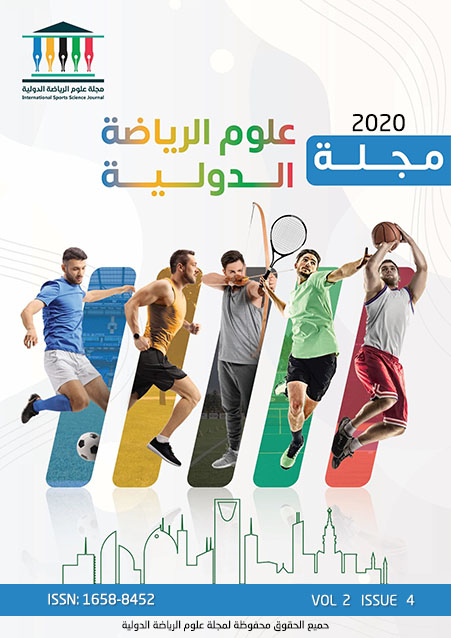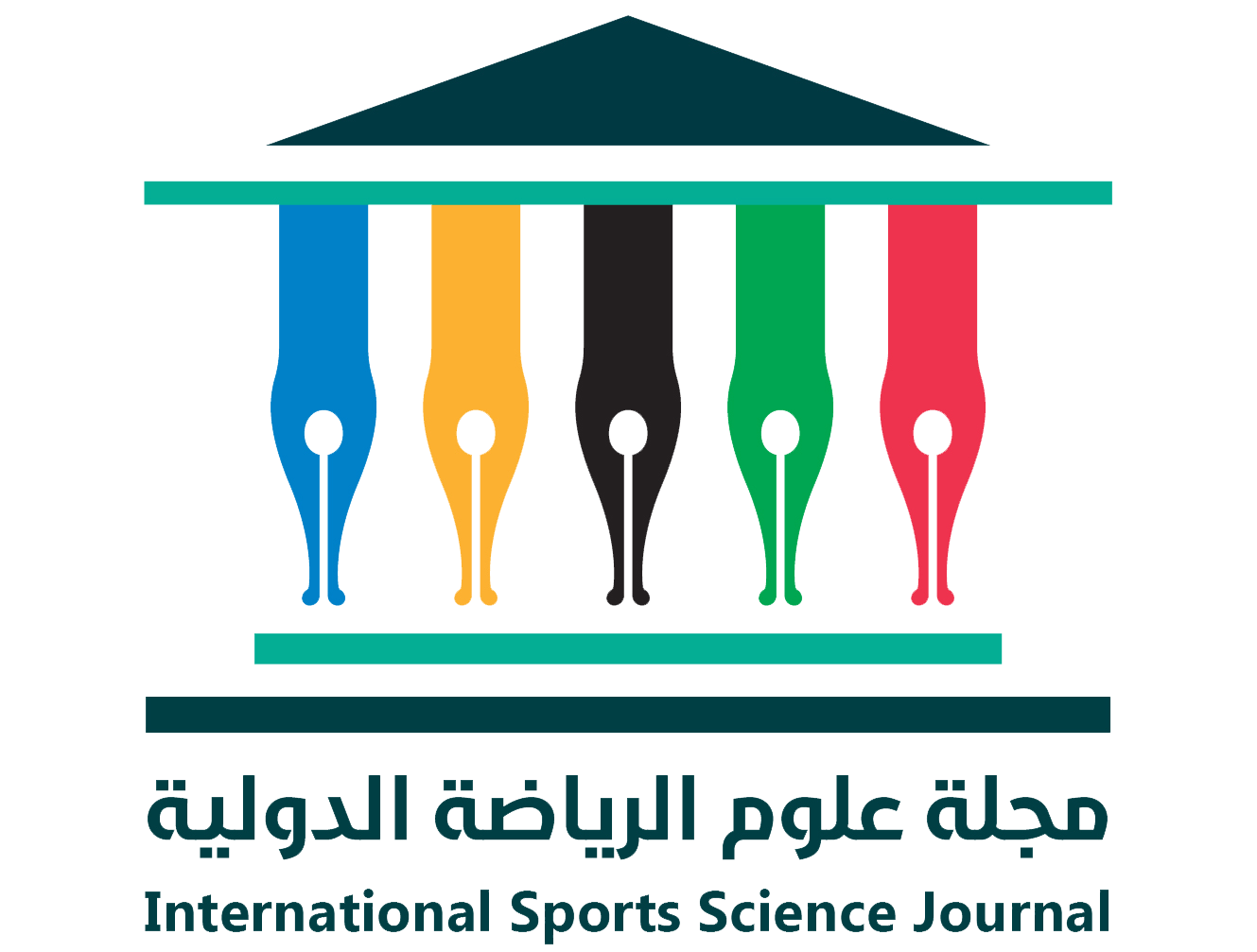Effect of a Psychological Skills Education Program (PSEP) on Free Kicks and Penalty Kicks For High School soccer players
DOI:
https://doi.org/10.71377/jwx72m76Keywords:
Education Program (PSEP), Kicks and Penalty Kicks, High SchoolAbstract
t-Mathematical training science is one of the sciences are concerned with preparing the athlete
in a comprehensive manner according to scientific foundations, The purpose of this experimental
research was to investigate the Effect of a Psychological Skills Education Program (PSEP) on Free
Kicks and Penalty Kicks For High School soccer players by teaching skills (muscular and mental
relaxation - mental perception - the focus of attention). In order to reach the optimal performance of
the soccer player while performing free kicks, and penalty kicks, And through that, we raise the
following questions:
1-Does the educational program using the proposed psychological skills is effective in improving
athletic performance of soccer players (free kicks, penalty kicks)?
2-Does educational program using psychological skills effective in developing the psychological skills
(relaxation, mental perception, the focus of attention) for soccer players?.
The design of this study is an experimental pre-test/post-test design. The information yielded by this design is
pre-treatment information, post-treatment information testing on both free kicks and penalty kicks. The
performance was collected on the pre-test (day 1), and the post-test (day 84). The treatment was completed
during days 2 to 84. Subjects were assigned to either the PSEP of experimental group (participants in PSEP) or
control group (not participants in PSEP). A one way ANOVA was used on pre-test kicks scores, The sample
consisted of 100 soccer players from Lake Highland High School students. The adjusted total
number of soccer players participants was 81 (age between16-18 years). There were 40 participants
in the Experimental Group (participant in PESP) and 41 participants in Control Group (No participant
in PSEP). The minimum age in Experimental Group was 16 and Control Group was 17 years of age.
The maximum age for both groups was 18 years of age. The mean age for Experimental Group was
19.60 (SD- 1.41) and the mean Control Group was 20.59 (SD-1.79).
1-The control group did not use the PSEP or learn about the PSEP from the treatment group. In.order
to limit the amount of communication of training material between the experimental and control
group the researcher de-emphasized any importance of information that one group is attaining in
comparison to the other group.
2-Free kicks and penalty kicks during testing represented actual game and practice performance.
3-The PSEP was presented as Boutcher and Rotella (1987) meant it to be presented.
4-The ANOVA (analysis of variance) yielded a significance value of (insert F, df info here) .001 which is
less than the .05 score, showing statistical significance; therefore, there was a significant statistical
difference in the effect that PSEP has on the Experimental group.
5- Effect Sizes measures the magnitude of the proposed effect, in this case of the Psychological skills
education program on the experimental group (use PSEP) . Using eta squared, the effect size was
found to be .72or simply 72% of the variance in the best free kicks, and penalty kicks performance,
can be explained by the focus on developing attention, exercising, correcting mistakes, breathing
exercises that increase attention and focus, and by relaxation exercises (massage, sauna, yoga),
which it is mean (PSEP).
Downloads
Downloads
Published
Issue
Section
License
Copyright (c) 2025 International Sports Science Journal

This work is licensed under a Creative Commons Attribution-NonCommercial-ShareAlike 4.0 International License.










